 Amazing cliff diving in cold winter
Amazing cliff diving in cold winter
 Enjoy Sochi 2014 in slow motion
Enjoy Sochi 2014 in slow motion
 University student sentenced to death for poisoning roommate
University student sentenced to death for poisoning roommate
 Chinese lunar New Year celebrated in San Francisco
Chinese lunar New Year celebrated in San Francisco
 Taiwan Lantern Festival 2014
Taiwan Lantern Festival 2014
 Haiyang Yangge: make up
Haiyang Yangge: make up
 China's top 10 richest cities
China's top 10 richest cities
 President Xi visits garrison troops in Inner Mongolia
President Xi visits garrison troops in Inner Mongolia
 Turnip sculptures amaze tourists in Qingdao
Turnip sculptures amaze tourists in QingdaoBEIJING, Feb. 21 -- As bloodshed and tensions rise in Ukraine, analysts said all political parties, facing tempting invitations from Russia and Europe, need to reach a common ground on the country's future direction and steer away from a possible civil war.
Kiev has witnessed the bloodiest outburst of violence since demonstrations began last November, with 67 people killed and 551 others injured in clashes starting Tuesday, marking the culmination of confrontation between the opposition and the Yanukovych government.
The East European country, sitting at the strategically important juncture between Russia and Europe, with which it also shares the Black Sea coast, has long been under competing influence from both powers for geopolitical interests, said Liu Fenghua, an expert at the Chinese Academy of Social Sciences.
"The current demonstrations were fuelled by Yanukovych's sudden suspension of the Free Trade Zone (FTZ) talks with the European Union last November, which was seen in Ukraine as a landmark for joining the European integration process," Liu said in an interview with Xinhua.
Noting that Yanukovych had long promoted closer ties with Europe in his previous speeches, Liu, vice director of the Institute of Russian, East European and Central Asian Studies at the academy, said the president must have felt troubled before making the decision.
"Ukraine's economy is largely depending on Russia's market and natural gas import," he said, adding joining the Russia-initiated customs union will bring "immediate interests to the country, including a cut on gas price," while joining the FTZ risks Russia's counter measures, "which the FTZ agreement with Europe cannot equally compensate."
"Russia paused the import of Ukrainian dairy and steel products in 2013, and used gas price as leverage, which have caused mounting deficit and losses of over 6.5 billion dollars on the Ukrainian side," Liu said.
Meanwhile, support for the Ukrainian opposition leaders demonstrated by Western countries was an "immediate cause" of the recent violence in Kiev, Timofei Bardachev, director of the Center for European Studies at the High School of Economics in Russia, told Xinhua in an exclusive interview.
The Ukrainian opposition leaders, for example, were invited by senior officials to Berlin, where they were openly told Germany favored them in the recent confrontation, he said.
"That recognition provoked the radical opposition to increase their aggressive actions against authorities, what we are witnessing right now," Bardachev said.
"As far as I'm concerned, the Ukrainian government has shown restraint in the three months, such as releasing arrested protesters and suggesting political dialogues," said Liu. "The real problem lies in some extremists' use of force and their tricky demands for immediate government resignation, constitutional amendment and an advanced presidential election, and so on."
"It's tricky because Yanukovych is the country's legitimately elected president, and he has always stuck to balanced policies between Russia and Europe, which is good for Ukraine's interests," Liu said.
"There were now three sides in Ukraine's political arena -- the government, the moderate opposition, and the radical opposition who feel very self-confident," Bardachev said.
The expert warned that the role of the so-called "system opposition," or the moderate opposition, which are currently represented in Ukraine's legislative body, will be marginalized and thus have no influence on future developments.
As to Ukraine's future, experts predicted that despite compromises made by the government, the prospect of a peace agreement through political negotiations is gloomy due to the opposition's bigoted political appeals and foreign interventions.
"It wants all or nothing," said Anatoly Adamishin, former Russian deputy foreign minister, now president of the Association for Euro-Atlantic Cooperation, a Moscow-based think tank.
The veteran diplomat said a possible solution could be that Moscow and the EU initiate negotiations between the confronting sides in Ukraine, which will also increase trust between Russia and Europe.
All the experts interviewed by Xinhua expressed concerns that it is possible for Ukraine to slip into a full-scale civil war.
"Ukraine is a big shot in the world's weapon-making industry, thus a possible tense civil war will surely exceed the control of Russia and Europe," Liu said, adding both "should think twice before squeezing their hands into the Ukrainian political wrestling."
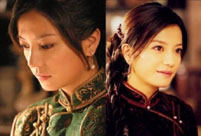 Most gorgeous female celebs in Chi-pao
Most gorgeous female celebs in Chi-pao Second round of test kicks off at Beijing Film Academy
Second round of test kicks off at Beijing Film Academy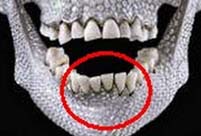 Ancient Qiang people had vertically grown teeth
Ancient Qiang people had vertically grown teeth Top 10 Chinese youth’s favorite seaside destinations
Top 10 Chinese youth’s favorite seaside destinations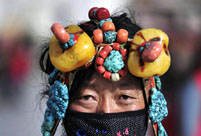 Traditional Tibetan clothing tailors
Traditional Tibetan clothing tailors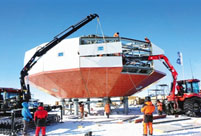 In photos: Unveiling Taishan station
In photos: Unveiling Taishan station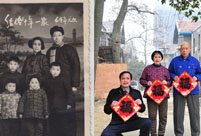 Beautiful moments of family reunion
Beautiful moments of family reunion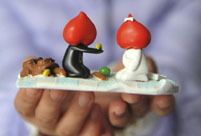 10 Valentine's Day ideas for couples
10 Valentine's Day ideas for couples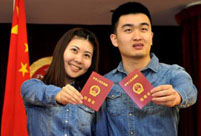 Let's get married today!
Let's get married today! Chinese warplanes C919 to appear at Singapore Airshow 2014
Chinese warplanes C919 to appear at Singapore Airshow 2014 Ruins of Shang Dynasty's structure unearthed in Shaanxi
Ruins of Shang Dynasty's structure unearthed in Shaanxi  Intercity high speed train in operation
Intercity high speed train in operation Severe coldness freezes large parts of China
Severe coldness freezes large parts of China  Beautiful moments of Sochi
Beautiful moments of Sochi  It's not just performing this year
It's not just performing this yearDay|Week|Month